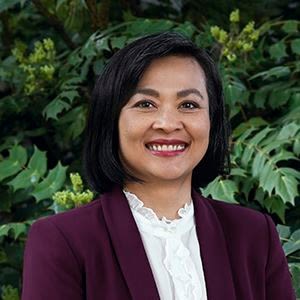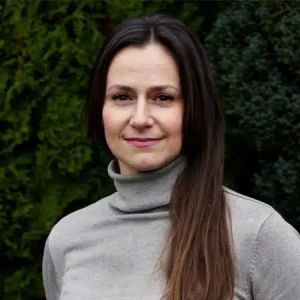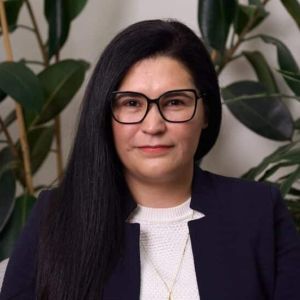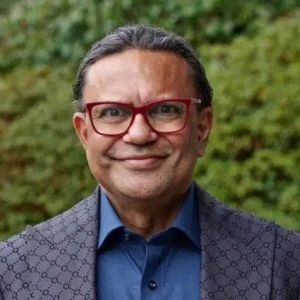






NEOVIVA Women's Programme
Verified Center
This provider's information has been quality-checked by Recovery.com's Research Team for accuracy and completeness, including center verification through appropriate third-party organizations.
Treatment Focus
This center treats substance use disorders and mental health conditions. You'll receive individualized care catered to your unique situation and diagnosis, learn practical skills for recovery, and make new connections in a restorative environment.
Primary Level of Care
Offering intensive care with 24/7 monitoring, residential treatment is typically 30 days and can cover multiple levels of care. Length can range from 14 to 90 days typically.
Treatment Focus
This center treats substance use disorders and mental health conditions. You'll receive individualized care catered to your unique situation and diagnosis, learn practical skills for recovery, and make new connections in a restorative environment.
Primary Level of Care
Offering intensive care with 24/7 monitoring, residential treatment is typically 30 days and can cover multiple levels of care. Length can range from 14 to 90 days typically.
Private Pay
You pay directly for treatment out of pocket. This approach can offer enhanced privacy and flexibility, without involving insurance. Exact costs vary based on program and length of stay. Contact the center for specific details.
NEOVIVA Women's Programme
NEOVIVA Women's Programme
About NEOVIVA Women's Programme
NEOVIVA Women's Programme is an ultra-private, boutique rehab clinic nestled on the world-famous Lake Lucerne in Switzerland. Often referred to as “The Riviera of Central Switzerland,” this picturesque location offers sweeping mountain views and a serene environment for recovery. The clinic is uniquely situated within a private section of a public hotel, providing an authentic yet discreet setting that mirrors real-world environments. This intentional setup is especially valuable for women participating in NEOVIVA’s Women’s Programme, as it allows them to confront and navigate potential triggers like social interactions and gatherings in a controlled and supportive space, fostering confidence and resilience for life beyond treatment.
Holistic Recovery with Advanced Diagnostics
The Women’s Programme is designed to treat a range of challenges, including substance addictions (alcohol, drugs, and prescription medications) and co-occurring mental health conditions such as anxiety, depression, PTSD, trauma, burnout, and ADHD. At the heart of the program is a dedication to personalized care. Each participant undergoes advanced diagnostics, including hormonal and genetic profiling, to craft a treatment plan tailored to her specific challenges and goals. Hormonal imbalances, often overlooked in women’s health, are assessed and rebalanced to aid the holistic approach to recovery. From mindfulness training and body-centered therapies to cutting-edge modalities like repetitive transcranial magnetic stimulation (rTMS), every aspect of care is designed to promote emotional and physical well-being.
Prepare for Life Beyond Treatment
What sets NEOVIVA apart is its innovative approach to real-life recovery. Unlike traditional rehabilitation centers, NEOVIVA operates within a hotel-like setting, allowing women to experience treatment in an authentic and relatable environment. This unique model empowers participants to apply new coping skills and behaviors in realistic scenarios, enhancing their confidence and resilience for life beyond treatment. The program also incorporates relapse prevention strategies, equipping women with the tools they need for long-term success.
Thrive Together and Find Support
Central to the Women’s Programme is its dynamic group-based therapy, which combines co-ed and women-only sessions. Co-ed therapy mirrors real-world social dynamics, building participants’ confidence in mixed-gender environments. Meanwhile, women-only groups offer a safe and supportive space to share experiences, address gender-specific challenges, and foster connections. This balanced approach ensures a comprehensive and empowering recovery journey, making the Women’s Programme a truly transformative experience.
NEOVIVA provides treatment in many languages, including French, Japanese, Bengali, Russian, English, German, and Afrikaans.
Highlights from the Center
Highlights
These highlights are provided by and paid for by the center.
Therapeutic Location
Utmost Confidentiality
Lakeside
Women Only
Center Overview
Treatment Focus
This center treats substance use disorders and mental health conditions. You'll receive individualized care catered to your unique situation and diagnosis, learn practical skills for recovery, and make new connections in a restorative environment.
Pricing and Program Length
Estimated Center Costs
The cost listed here (CHF 35'350 per week), is an estimate of program cost. Center price can vary based on program and length of stay. Contact the center for more information. Recovery.com strives for price transparency so you can make an informed decision.
Luxury rehab centers offer a unique blend of luxurious amenities and high-quality treatment. From private suites to gourmet dining, personal trainers to spa treatments, these facilities provide a high level of comfort and discretion.

Meet Your Care Team

Fenina Erpf
CEO
MSc in Psychology

Oliver Neubert
Founder & Chairman
MSc in Addiction Studies

Dr. med. Andrei Khomenko
Medical Director
Specialist Psychiatry & Psychotherapy, and Neurology

Dr. med. Andrea Dzaja
Medical Director

Dr. phil. Mayte Parada
Clinical Lead

Gabriella Rothman
Recovery Counsellor

Adelina Guerrero
Recovery Counsellor

Shelley Heusser
Psychotherapist
MSc in Clinical Psychology

Dr. phil. Mohammed Shafiullah
Clinical Psychologist
PhD in Psychology

Jason Milne
Head Recovery Counsellor
MA in Education

Ian Taylor
Recovery Counsellor
MSc in Psychology

Hugrún Kristjánsdóttir
Recovery Counsellor

Arinder Sadhra
Recovery Counsellor

Anthony Cummins
Recovery Counsellor

Michael John
Recovery Counsellor

Sarah McGoldrick
Recovery Counsellor

Crystal Guler
Client Relations Manager

Eugenia Kozi
Client Relations
MSc in Media & Communication

Bentley
Chief Happiness Officer

Blue
Chief Zen Officer

Julie & Janusch & Lorenzo
Chief Comfort Officers




Levels of Care






Your Care Options
Specializations
1-on-1 Counseling
Patient and therapist meet 1-on-1 to work through difficult emotions and behavioral challenges in a personal, private setting.
Pet Friendly
For greater comfort and healing, pet-friendly treatment centers welcome dogs and animal companions to stay with their owners while they attend treatment.
Executives
Executive treatment programs typically directly support the needs of people who manage businesses and may provide flexible schedules and office space to allow work during treatment.
Women only
Women attend treatment in a gender-specific facility, with treatment delivered in a safe, nourishing, and supportive environment for greater comfort.
Who We Treat
Women only
Women attend treatment in a gender-specific facility, with treatment delivered in a safe, nourishing, and supportive environment for greater comfort.
Approaches
Bio-Medical
A philosophy focusing on the biomechanics behind mental health disorders, using prescribed medications as a supplement to behavioral therapy.
Evidence-Based
A combination of scientifically rooted therapies and treatments make up evidence-based care, defined by their measured and proven results.
Holistic
A non-medicinal, wellness-focused approach that aims to align the mind, body, and spirit for deep and lasting healing.
Individual Treatment
Individual care meets the needs of each patient, using personalized treatment to provide them the most relevant care and greatest chance of success.
Therapies
1-on-1 Counseling
Patient and therapist meet 1-on-1 to work through difficult emotions and behavioral challenges in a personal, private setting.
Meditation & Mindfulness
A practiced state of mind that brings patients to the present. It allows them to become fully aware of themselves, their feelings, and the present moment.
Trauma-Specific Therapy
This form of talk therapy addresses any childhood trauma at the root of a patient's current diagnosis.
Online Therapy
Patients can connect with a therapist via videochat, messaging, email, or phone. Remote therapy makes treatment more accessible.
Transcranial Magnetic Stimulation
Localized magnetic pulses stimulate areas of the brain to increase brain activity and reduce abnormal functions.
Adventure Therapy
This experiential approach uses the physical and emotional challenges of outdoor activities as tools for personal growth.
Attachment-Based Family Therapy
ABFT is a trauma-focused therapy that teaches you to form healthy relationships by rebuilding trust and healing attachment issues formed in childhood.
Animal Therapy
Animals can inspire trust and self-worth. In this experiential therapy, guided interactions are used to improve social skills and emotion regulation.
Conditions We Treat
Anxiety
Anxiety is a common mental health condition that can include excessive worry, panic attacks, physical tension, and increased blood pressure.
Depression
Symptoms of depression may include fatigue, a sense of numbness, and loss of interest in activities. This condition can range from mild to severe.
Trauma
Some traumatic events are so disturbing that they cause long-term mental health problems. Those ongoing issues can also be referred to as "trauma."
Substances We Treat
Alcohol
Using alcohol as a coping mechanism, or drinking excessively throughout the week, signals an alcohol use disorder.
Benzodiazepines
Benzodiazepines are prescribed to treat anxiety and sleep issues. They are highly habit forming, and their abuse can cause mood changes and poor judgement.
Chronic Relapse
Consistent relapse occurs repeatedly, after partial recovery from addiction. This condition requires long-term treatment.
Co-Occurring Disorders
A person with multiple mental health diagnoses, such as addiction and depression, has co-occurring disorders also called dual diagnosis.
Cocaine
Cocaine is a stimulant with euphoric effects. Agitation, muscle ticks, psychosis, and heart issues are common symptoms of cocaine abuse.
Drug Addiction
Drug addiction is the excessive and repetitive use of substances, despite harmful consequences to a person's life, health, and relationships.
Heroin
Heroin is a highly addictive and illegal opioid. It can cause insomnia, collapsed veins, heart issues, and additional mental health issues.
Methamphetamine
Methamphetamine, or meth, increases energy, agitation, and paranoia. Long-term use can result in severe physical and mental health issues.
Languages
Aftercare
Care Designed for Your Needs
Personal Amenities
Amenities
Special Considerations
Center Pets
Addiction and mental health facilities with pets allow patients to interact with friendly dogs, cats, horses, and in some cases, even dolphins.
Pet Friendly
For greater comfort and healing, pet-friendly treatment centers welcome dogs and animal companions to stay with their owners while they attend treatment.
Executive Program
Addiction and mental health treatment for executives typically involves high discretion, greater technology access, and more private, 1-on-1 care.
Family Member Stays
Treatment providers welcome family members to stay on-site to better the experience and success of patients and their families as a whole.
Flexible technology policies
Centers with flexible technology policies allow professionals to stay in touch with work and give patients a greater sense of connection and normalcy.
Activities
Yoga
Yoga is both a physical and spiritual practice. It includes a flow of movement, breathing techniques, and meditation.






